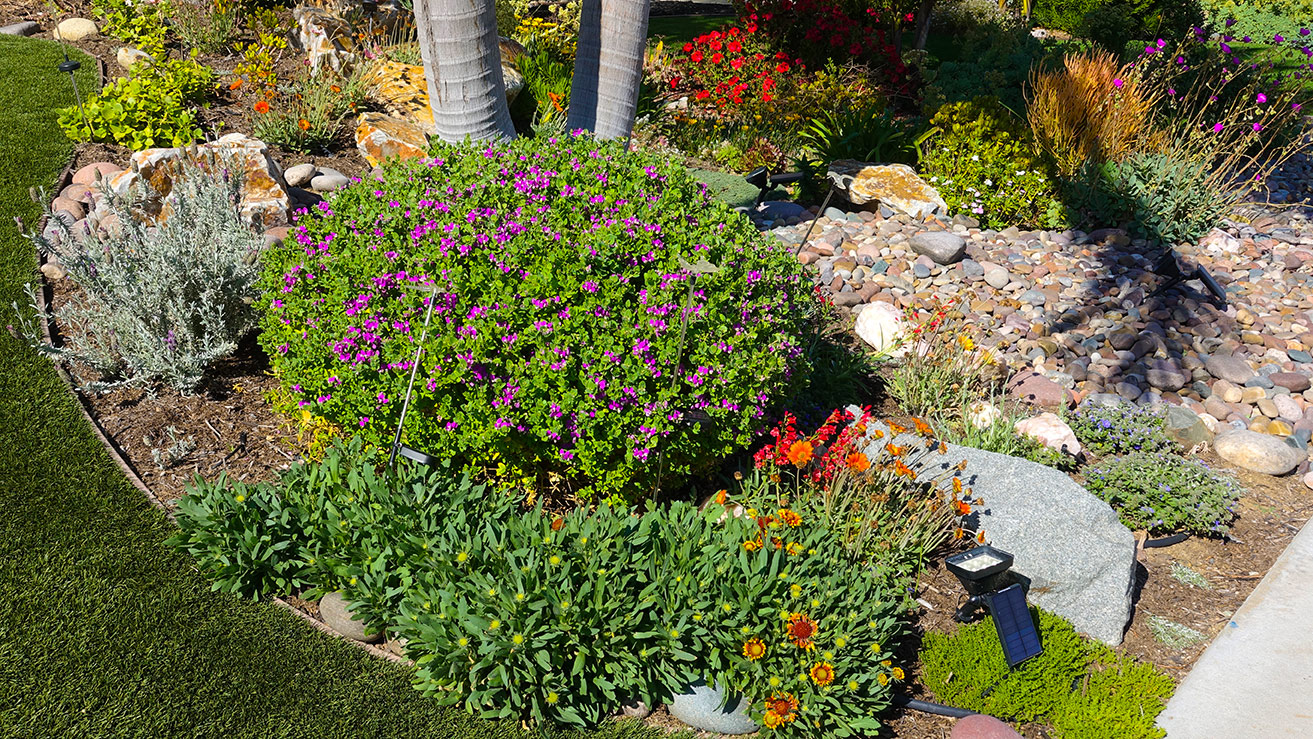
Once your water-sparing yardscape plans become reality, you’ll discover that the plants you selected for being well suited to their environment will require much less care. That means you’ll be spending less time and money for fertilizer and pest control. Experts say that a well-designed yardscape can decrease maintenance by as much as 50 percent.
- Don’t set the lawnmower blades too low. Cutting closely stresses grass, exposes the soil to sun which lets weed seeds germinate, and allows water to evaporate. Use minimal fertilizer on established lawns and leave short grass clippings on the lawn to decay naturally and maintain soil fertility.
- Gardeners all know compost is terrific stuff. But “compost tea” is even better! It can be used by the pitcher on container plants, in small landscaped beds, or as a soil drench on problem turf areas.
- If you have selected a variety of native perennials and grasses, a side benefit is that not only are Natives usually low-maintenance, they support butterflies, beneficial insects, and birds that are important to a balanced ecosystem. Mass native plantings can replace lawn size to reduce both mowing and irrigation requirements…resulting in even less maintenance.
- Speaking of beneficial insects, they can help you reduce the use of chemical pesticides. Virtually all of the insects most commonly seen in homes and gardens are considered either beneficial or harmless. There are Predators that catch, kill, and eat other insects. Lady bugs, for example, feed on soft-bodied insects such as aphids and spider mites as well as insect eggs. Decomposers eat and digest dead critters and waste materials, releasing carbon, nitrogen, and other raw elements essential to all life back into the air, water, and soil. The humble earthworm is king of the decomposers. Pollinators are essential and contribute to mankind’s welfare and comfort. It is estimated that pollinators are worth at least $20 billion annually in the United States alone. Beneficial insects are more likely to remain in your garden if there is a ready food supply. Plant nectar producing flowers; plants in the cabbage, carrot and sunflower family; and be sure to cover any areas of bare dirt with a mulch of dead leaves or grass clippings, thick enough to shade the soil surface. Birds can also be very helpful with controlling pests in your garden. Trees, shrubs with berries, birdhouses and water features all encourage birds to visit your yard.